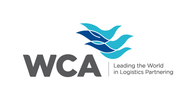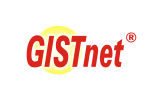

CB31u—Processing the Trade Remedies Imposed by Section 201 of the Trade Act of 1974
Subscriber price: $47.00, Non-subscriber price: $53.00
Estimated total study time: 3 hours 20 minutes
![]()
This course is for Customs Brokers and Importers filing entries for Solar Cells and Large Residential Washing Machines under Section 201 of the Trade Act of 1974. It addresses practical operational issues such as the list of affected products, the applicable HTSUS Chapter 99 tariff numbers, the consequences of failure to add the additional tariff line item and duty when applicable, importer bond sufficiency, and where to obtain additional information as further developments arise.
Section 201 Safeguards, Purpose and Regulations
This lesson provides an in-depth overview of Section 201 Safeguards under the Trade Act of 1974. It explores the historical context, criteria, and processes involved in implementing trade barriers to protect domestic industries from serious injury caused by increased imports. The lesson also examines the role of the U.S. International Trade Commission (USITC) in investigating and recommending relief measures, as well as the President's authority in determining and enforcing these measures.
(Estimated study time: 52 minutes)
- Introduction
- From Legislation to Tariff Classification
- 9903 Overview of Trade Remedies
- Background of Section 201 Safeguards
- Laws and Regulations Pertaining to Section 201
- Global Safeguard Investigations of Section 201
Section 201 Exclusions and Entry Filing Using Chapter 99
This lesson delves into the procedures for exclusion requests under Section 201 of the Trade Act of 1974, focusing on the guidelines set forth in the Federal Register (83 FR 6670). It covers the process for submitting exclusion requests, the President's decision-making timeline, and the implementation of safeguard measures. The lesson also examines specific cases, such as the safeguard measures on crystalline silicon photovoltaic cells and large residential washing machines, and provides detailed instructions for classifying goods under Chapter 99 of the Harmonized Tariff Schedule of the United States (HTSUS).
(Estimated study time: 1 hour 2 minutes)
- Introduction
- Importers can request Exclusions from Section 201 Tariffs
- Consult any Filing Instructions, Chapter or Subchapter Notes
- General Entry Filing Using Chapter 99
- 9903 U.S. Notes
- Notification to the Public of Trade Legislation for Section 201
- Specific Tips for Entry Filing of Section 201 Goods
General Tariff Classification, Post Entry and Other Considerations for Chapter 99
This lesson begins with detailed instructions on handling multiple HTSUS classifications on the same entry summary line when Chapter 98 or 99 is required. The rest of the lesson focuses on the procedures and best practices for handling U.S. Customs and Border Protection (CBP) rejects due to inaccurate classification or information in Chapter 99 of the Harmonized Tariff Schedule of the United States (HTSUS). It covers the common reject messages received by Automated Broker Interface (ABI) filers, the steps to correct and resubmit entries, and proactive measures to avoid such rejections. Additionally, the lesson addresses bond sufficiency considerations and customs broker billing practices for shipments subject to additional duties.
(Estimated study time: 1 hour 27 minutes)
- Introduction
- Reporting Multiple HTSUS classifications on the Same Entry Summary Line
- When Multiple Classifications on a Single Line Include Chapter 98 or 99
- Stacking of Certain Additional Duties
- GUIDANCE
- APPLICABILITY
- REPORTING
- EFFECTIVE DATE
- REFUNDS OF PREVIOUS DUTY PAYMENTS
- EXAMPLES
- CBP Rejects for Inaccurate Classification or Product Information in Chapter 99
- Post Entry for Goods in Chapter 99
- Bond Sufficiency for Products with Additional Duties
- Customs Broker Billing and Payment Considerations for Shipments with Additional Duty
- Proactive Recommendations When Clients May Be Affected by Temporary Import Legislation